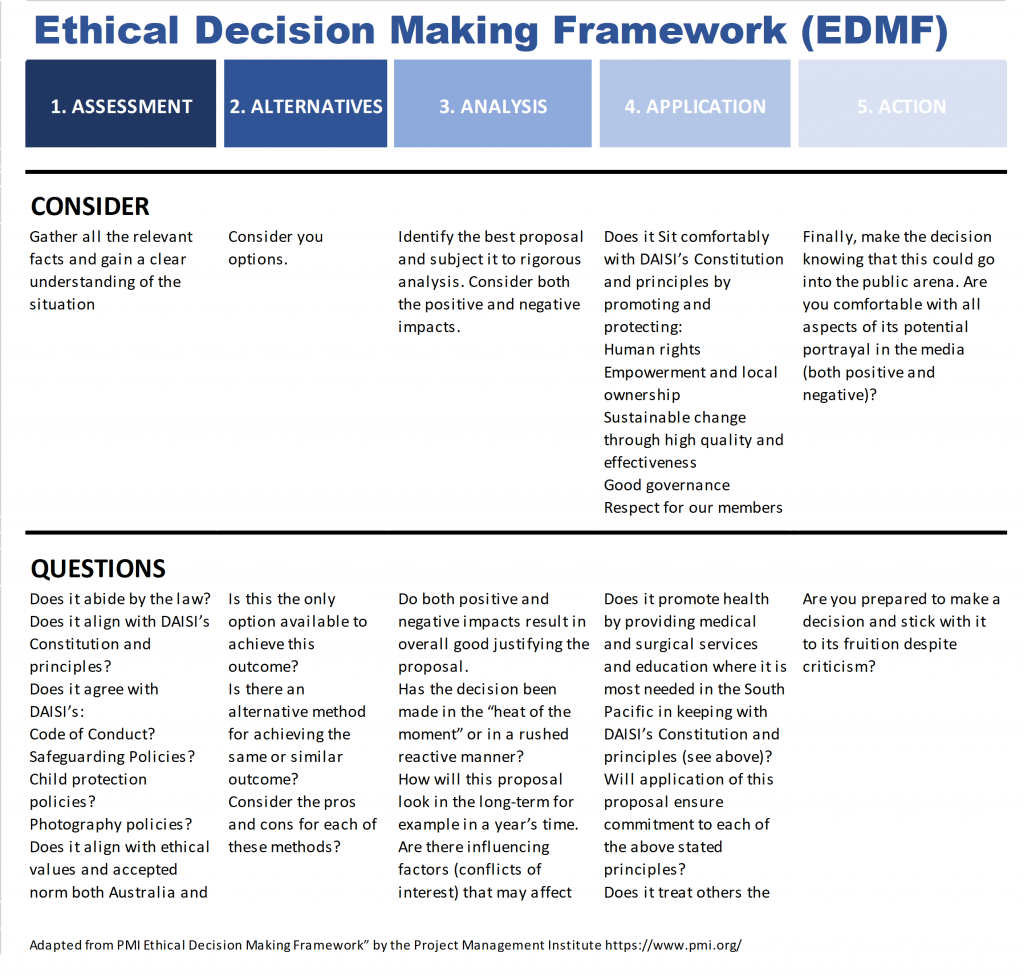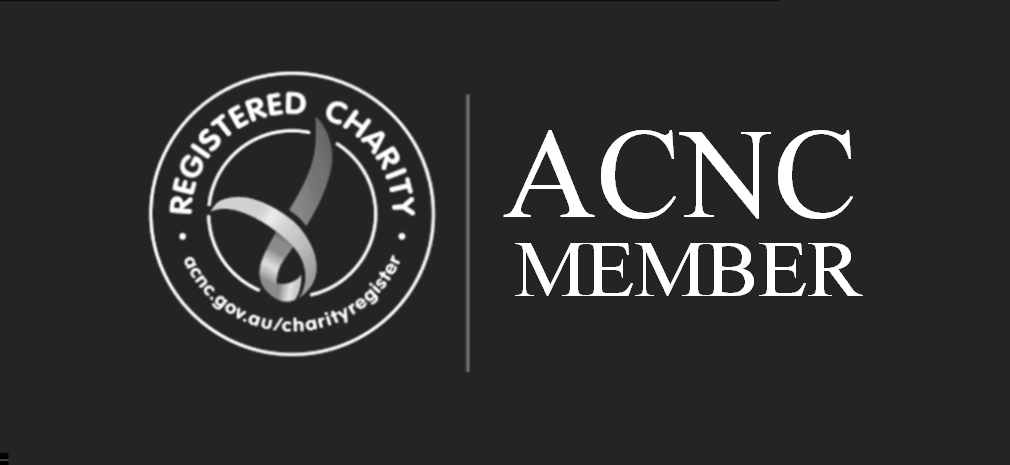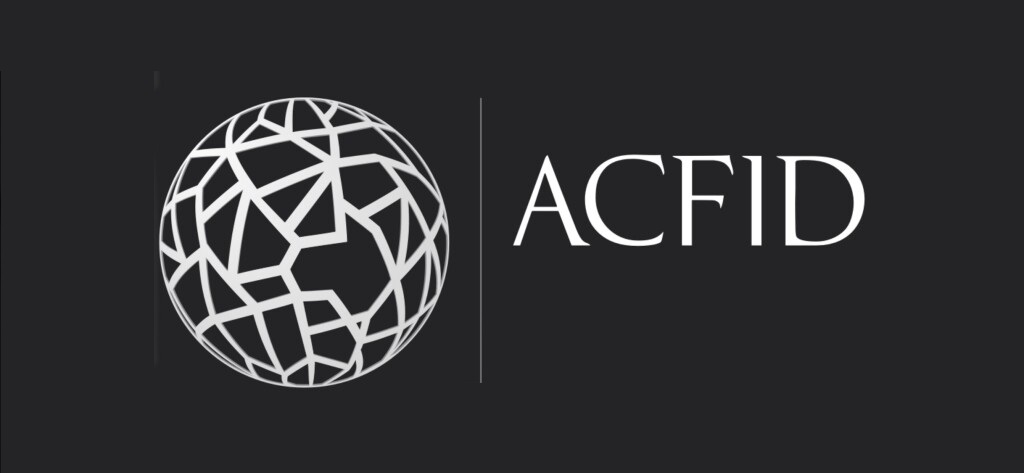.
DAISI’s Ethical Decision Making Framework (EDMF), is specifically designed to be used when considering ethical dilemmas around the use of images and information to be used in communications materials. It can also be used for approaching any ethical decision making process.
This framework is a way of mandating proper assessment of the situation, the alternatives, analysing the negative and positive impacts a decision may have (particularly on those most vulnerable) and if the application of a particular decision achieves the greatest good. Finally, if it meets favourable criteria, make a decision that you will be prepared to stick by when scrutinesed in public .
There are 5 stages to the framework: Assessment, Consider Alternatives, Analysis, Application and Action
Assessment
Gather all the relevant facts and gain a clear understanding of the situation. In order to do this, ask the following questions: does it abide by the law? Does it align with the principles and ethos that underpin DAISI’s Constitutions? Does it agree with DAISI’s Code of Conduct and Safeguarding policies? Does it align with DAISI’s Privacy Policy, Fundraising Policy, and Photography Policy. Does it align with the ethical values in Australia, as well as the partner nation?
Consider Alternatives
Consider your options.
Is this the only option available to achieve this outcome?
Ask if there is a alternative method for achieving the same or similar outcome. Consider the pros and cons for each of these methods.
Analysis
Identify the best identified proposal and subject it to rigorous analysis
Do both positive and negative impacts result in overall good justifying the proposal? Has the decision been made in the “heat of the moment” or in a rushed reactive manner? How will this proposal look in the long-term, for example in a years time. Are there are influencing factors (conflicts of interest) that may affect your judgement or be perceived by others to have affected your judgement.
Application
Apply each of the seven ethical principles below stated in DAISI’s Constitution, to see if it sits comfortably with these.
DAISI’s Constitution is based on the principles of promoting and protecting:
1. Human rights,
2. Empowerment and local ownership
3. Sustainable change through high quality and effective projects,
4. Good governance
5. Respect for our members and all stakeholders,
6. Environmental stewardship,
7. Effective and transparent communication
Will application of this proposal ensure commitment to each of the above stated ethical principles. Does it treat others, the way we would like to be treated? It the proposal fair and beneficial to all involved?
Action
Finally, make the decision knowing that this could go into the public arena. Are you comfortable with all aspects of its potential portrayal in the media (both positive and negative)




